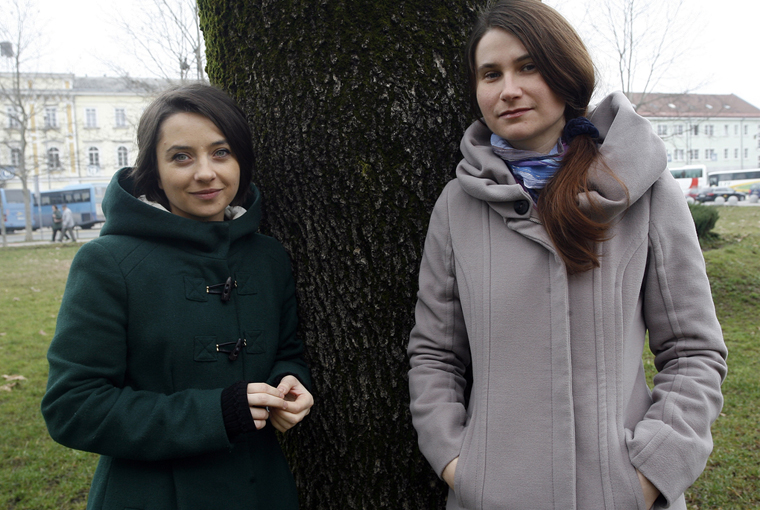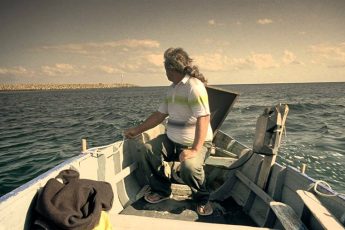
Cristina Flutur and Cosmina Stratan speak about their roles in Cristian Mungiu’s “Beyond the Hills”, a love story set in a remote monastery. For their performance, Flutur and Stratan were awarded the Best Actress prize in Cannes…
What do you think about the religious dimension of this film? Do you think the film is anti-clerical?
Stratan: I can only hope that people will watch this film from their personal point of view. I think that religion is a very personal matter, and people should approach it as such. First and foremost, this film is about personal commitment and personal choice.
Flutur: Yes, I think it’s mainly a story about two girls. It is a story of love in a certain social and religious context. I don’t know if it’s anti-clerical. Each viewer has to decide what he gets from this film.
What did you get from the screening?
Flutur: I must admit that I couldn’t remain detached from the film. I was reliving emotions and following the story from the perspective of my character. The main thing I got out of seeing the film at the premiere was this question of the freedom of choice: you have to learn to think and act on your own behalf. If you let yourself be guided by what the church or institutions tell you, it can have tragic consequences.
Had you heard of the incident that the film is based on before you joined the project?
Flutur: Yes, we had heard about it from hearsay, but not about all its details. The coverage was very sensationalist. The great thing about this film is that Cristian succeeded in turning a sensational story into a story about human beings. It got to a deeper level. We have gotten so used to this sort of news that we have stopped caring about it, but Cristian was able to focus on the nuances.
How was it working with Cristian?
Stratan: It was great, Cristian gave me the feeling that I can do whatever I want, and that there is not a wrong way to act it out. There were scenes from the film that we didn’t act out well during the first takes, but he never said that it was wrong. He adapted the script to fit the development of our characters.
Flutur: He gave us the opportunity to search for our characters, which is amazing. Oftentimes, there is no time or patience and you feel like you are constrained. Cristian gives you the possibility of growing. It was a collaboration, he wasn’t ordering us to do anything. He’s very flexible.
How was it working on a feature, considering that you are mostly experienced in theatre?
Flutur: It is different to work on a film, but I didn’t feel like I had to learn anything new. I just jumped into it. I felt like I knew what I had to do.
There is much tension between your two characters from the very beginning of the film. How did you prepare for your characters?
Stratan: We had a lot of discussions prior to the film. Cristian told me what he wanted out of the character, but he also allowed me to bring in my own opinion. Often, I simply used my intuitions to figure out what my character was about. It was hard, because it is hard to identify with this character who always needs someone else to act on her behalf. Voichita keeps all her feelings and thoughts to herself.
Flutur: It is true that there is a lot of tension from the beginning of the film. When Alina arrives at the monastery, Voichita is already skeptical because she knows what Alina is up to. So you don’t start out from a peaceful atmosphere and move towards a more tense one. You can sense the pressure from the first moments of the film.
Stratan: The pressure moves as the story develops. In the beginning, it is mostly between Alina and Voichita, but it gradually moves towards a conflict between Alina and Voichita and the others in the monastery. Voichita realises that she has to help and protect Alina, even if she doesn’t know how to.
In the end, it is Voichita who tells the police all the details about what happened. Does she realise that she is guilty, too?
Stratan: There is a conflict Voichita is struggling with. In the course of the action, Voichita doesn’t do much to intervene. But Alina’s death changes her, and I think that in the end she is ready to accept that she was guilty, too. To her, it’s the easiest way to pay for her sins.




Leave a Comment